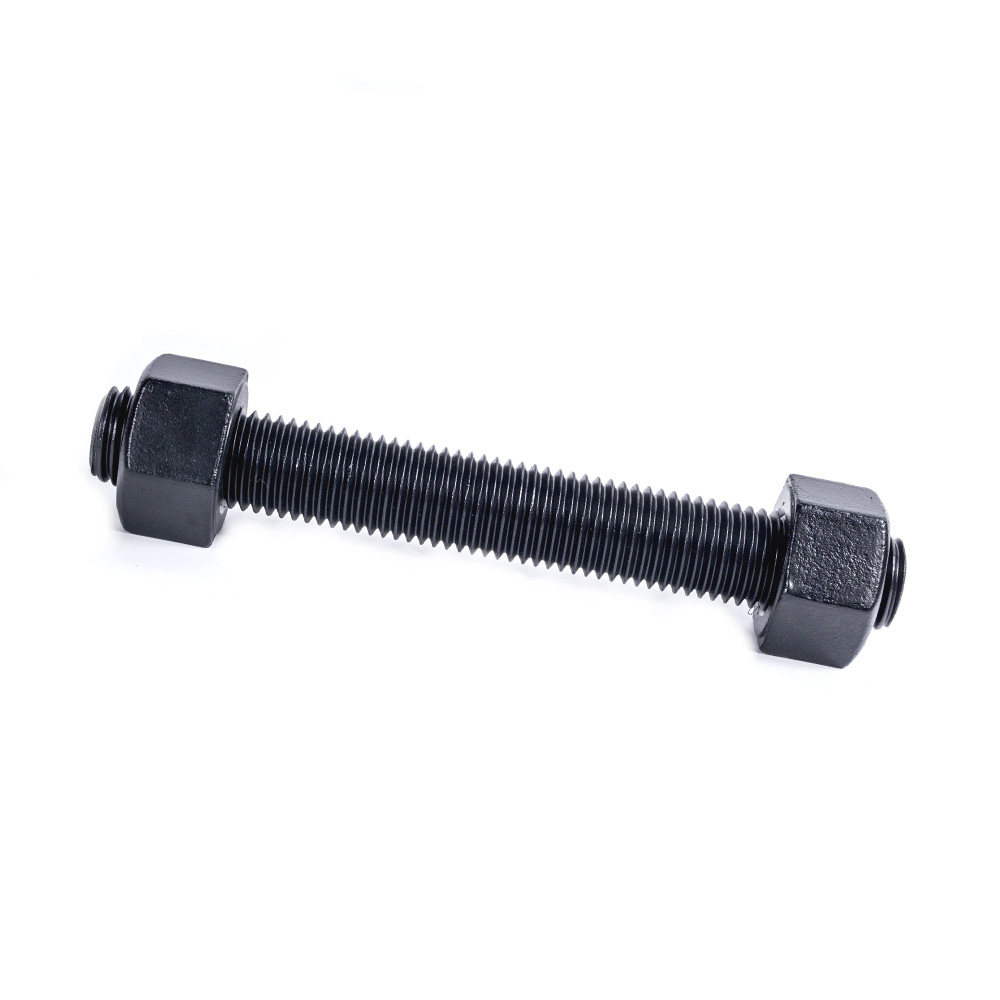STUD BOLTS SUPPLIER IN CHINA
Stud bolts is an externally threaded mechanical fastener. An assembly of stud bolt connections is usually formed by two nuts and the stud. Sometimes, washers and additional nuts may be used. In high-pressure piping and pipeline flange connections, stud bolts are widely used.
Types of stud bolts
1. Fully Threaded Stud Bolt:
– These stud bolt have threads along their entire length, making them versatile for various applications. Fully threaded studs are often used in situations where a specific length adjustment is required.
2. Double-End Stud Bolt:
– Double-end stud bolt have different thread lengths on each end, allowing for different nuts to be used. They are commonly used in applications where two different components need to be fastened together.
3. Tap End Stud Bolt:
– Tap end stud bolt have threads of equal length on both ends, but one end is threaded to a larger diameter. This larger diameter end is typically screwed into a tapped hole, while the other end accommodates a nut.


Specification of stud bolts:
| Product Name | Stud bolts |
| Diameter | Metric: M6-M100 Imperial:1/4" to 4" |
| Length | Metric: Up to 1000mm Imperial: Up to 40" |
| Class | 4.8/6.8/8.8/10.9/12.9 A2-70 A2-80 A4-70 A4-80 |
| Grade | SAE J429 Gr.2/5/8 A193 Gr.B7 Gr.B16 Gr. B8 Gr.B8M A 320 Gr. L7 |
| Surface treatment | Black Oxide Coating/Zinc Plating /Hot-Dip Galvanizing/Mechanical Galvanizing/Dacromet Coating/Painting or Powder Coating/PTFE |
| Application | Petrochemical Industry/Power Generation/Oil and Gas Industry/Food and Beverage Industry/Chemical Industry/Water Treatment Facilities/Construction and Infrastructure |
Benefits:
1. High Strength:
– Stud bolt are known for their exceptional strength, making them ideal for heavy-duty applications.
2. Load Distribution:
– The use of nuts on both ends allows for even load distribution, reducing the risk of component damage.
3. Easy Assembly:
– Stud bolt simplify assembly processes, especially in applications where it’s challenging to access both ends.
4. Precise Tensioning:
– Stud bolt can be precisely tensioned, ensuring accurate and consistent fastening.
Stud bolt may not grab the spotlight, but they are the unsung heroes of many industries. Their strength, versatility, and ability to securely fasten critical components make them indispensable. Whether you’re building skyscrapers, powering cities, or flying through the skies, stud bolt are there, quietly ensuring everything holds together.
FAQ about stud bolts:
1.What materials are commonly used to produce stud bolts?
– Stud bolts can be made from various materials, including carbon steel, alloy steel, stainless steel, brass, and other specialty materials. The choice of material depends on the application and required properties.
2.What are the key steps in the manufacturing of stud bolts?
The main steps include cutting the raw material to length, threading, heat treatment (if needed for certain materials), and finishing processes like coating or plating.
3.What quality control measures are taken during stud bolt production?
Quality control includes dimensional checks, thread inspection, material verification, and testing for properties like hardness and tensile strength. We follow strict quality assurance protocols.
4.What is the typical lead time for producing stud bolts?
Lead times for stud bolt production can vary based on factors like material availability, order size, and customization requirements. We will provide lead time estimates when offer quotation.
5.Can you provide test certificates or material traceability documentation?
Yes, we can provide test certificates and material traceability documentation to ensure product quality and compliance with industry standards.
